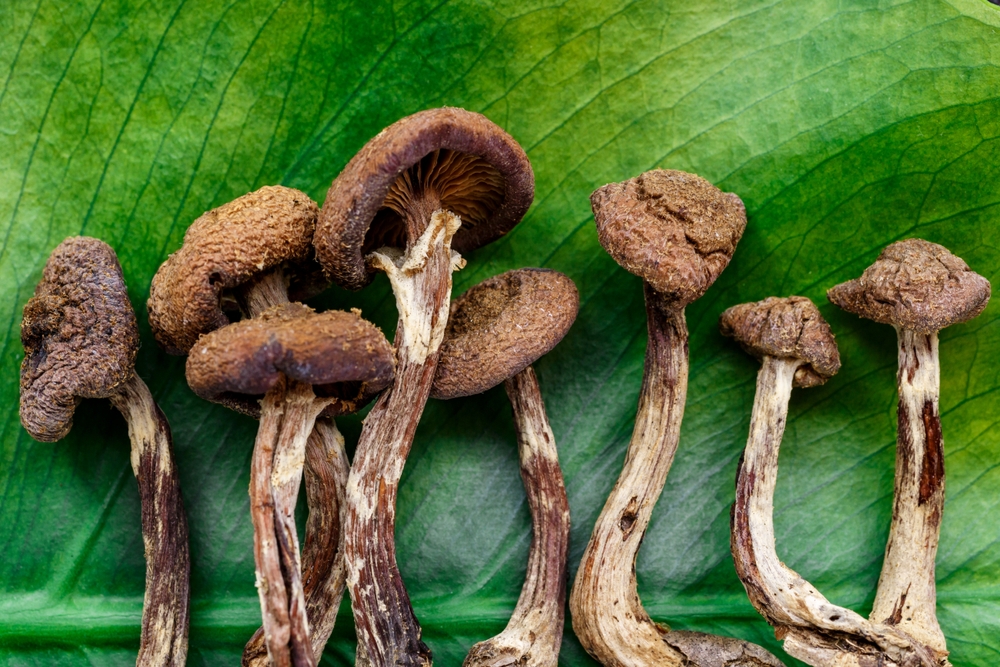Psilocybin Research Continues to Expand

If you are following the research on psilocybin, a psychedelic substance, you may have a hard time keeping up. The past several years have produced some significant research and this year is no exception.
So far this year, the research regarding depression and anxiety have continued, as well as research on eating disorders and mechanisms.
New This Year
Regarding mental health in general, a paper published in Psychiatry Research looked at 59 studies for the meta-analysis and 67 for the systematic review and found that psychedelics had a positive effect on many mental health issues including anxiety, depression, suicidality, substance-use disorder, post-traumatic stress disorder, sleep disturbances, obsessive-compulsive disorder, and other rare mental health conditions.
Three papers published this year, including two systematic reviews and meta-analyses, focused on psilocybin’s use in treating depression. BMJ looked at nine randomized trials and found that in seven of the trials, psilocybin treatment resulted in significantly greater improvement in depression symptoms. Frontiers in Psychiatry looked at ten studies and included eight in their meta-analysis and found that psilocybin had both short-term and long-term antidepressant effects.
The Lancet published an observational six-month follow-up of a phase 2, double-blind, randomized, controlled trial featuring adults with moderate-to-severe major depressive disorder comparing psilocybin to the popular SSRI antidepressant medication Lexapro. While the primary outcome measurement was depressive symptoms, secondary outcomes included social functioning, connectedness, and meaning in life. After taking a single dose of psilocybin or a six-week course of Lexapro, patients had a significant improvement in their depressive symptoms indicating that psilocybin was as effective as the drug; however, the psilocybin group reported more long-term benefits that included enhanced life meaning and social connectedness.
According to a narrative review published in the Journal of Eating Disorders, psilocybin therapy shows promise in treating anorexia nervosa (AN), an eating disorder that can be difficult to treat. A phase 1, open-label feasibility study published in the journal Focus that also looked at psilocybin as a treatment for AN concluded, “Results suggest that psilocybin therapy is safe, tolerable and acceptable for female AN, which is a promising finding given physiological dangers and problems with treatment engagement.”
“While I'm not an expert in disordered eating, I do have clients for whom psychedelic session(s) have reaffirmed a sense of self-love or understanding that catalyzes their willingness to engage with other specific treatments for their conditions,” said psychedelic expert, researcher, and naturopathic physician Emily Whinkin, ND. “Eating disorders are often accompanied by obsessive, punitive thinking and a lot of shame, and psychedelics can help folks gain access to a new internal monologue and motivation to heal in new ways.”
Mechanistically, research is uncovering more information about how psychedelics work including their ability to promote neuroplasticity and neuron growth in the prefrontal cortex. A paper published in Nature this year used brain imaging of healthy adults after a single high dose of psilocybin and found that it desynchronizes the brain by disrupting the functional connectivity in the cortex and subcortex. The researchers concluded, “Persistent reduction of hippocampal-default mode network connectivity may represent a neuroanatomical and mechanistic correlate of the proplasticity and therapeutic effects of psychedelics.”
It is believed that psychedelics don’t necessarily rewire the brain, they repair damaged circuitry which occurs with mental health issues.
The Clinical Perspective
According to Dr. Whinkin, while the studies are more robust either in size or with a longer follow-up, the research is still having difficulty in controlling for what happens between psychedelic sessions or between the end of the active study period and follow-up period.
“Clinically, the point of introducing psychedelics into someone's treatment plan is to facilitate a shift in their life helping them to be more likely to engage with life-affirming, healthy practices that contribute to their psycho-emotional wellbeing,” explained Dr. Whinkin, who is with the Advanced Integrative Medical Science Institute in Seattle. “These shifts are likely more aligned with how psychedelics are used traditionally, not in a vacuum as a single treatment modality but in rhythm with other culturally relevant group and individual practices.”
Dr. Whinkin would like future research that is less transactional and helps capture the effects that psychedelics can have beyond individual sessions and symptom measures.
“I’d like to see research that helps show where psychedelics could have the biggest impact but until they are more widely legalized, they will be relegated to the realm of idea-generation and proposals,” said Whinkin. “But that’s a good start.”




















SHARE